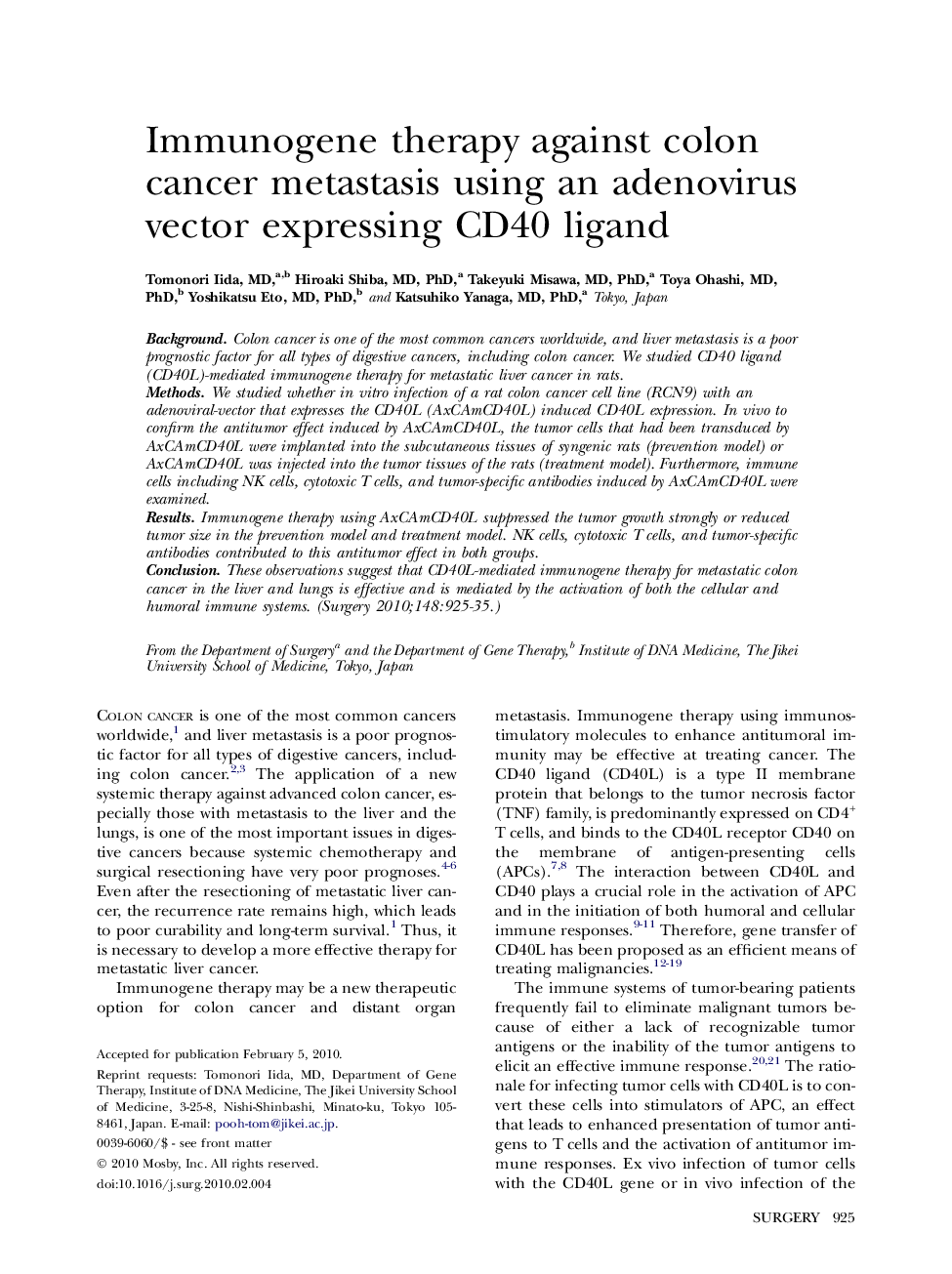| Article ID | Journal | Published Year | Pages | File Type |
|---|---|---|---|---|
| 4308941 | Surgery | 2010 | 11 Pages |
BackgroundColon cancer is one of the most common cancers worldwide, and liver metastasis is a poor prognostic factor for all types of digestive cancers, including colon cancer. We studied CD40 ligand (CD40L)-mediated immunogene therapy for metastatic liver cancer in rats.MethodsWe studied whether in vitro infection of a rat colon cancer cell line (RCN9) with an adenoviral-vector that expresses the CD40L (AxCAmCD40L) induced CD40L expression. In vivo to confirm the antitumor effect induced by AxCAmCD40L, the tumor cells that had been transduced by AxCAmCD40L were implanted into the subcutaneous tissues of syngenic rats (prevention model) or AxCAmCD40L was injected into the tumor tissues of the rats (treatment model). Furthermore, immune cells including NK cells, cytotoxic T cells, and tumor-specific antibodies induced by AxCAmCD40L were examined.ResultsImmunogene therapy using AxCAmCD40L suppressed the tumor growth strongly or reduced tumor size in the prevention model and treatment model. NK cells, cytotoxic T cells, and tumor-specific antibodies contributed to this antitumor effect in both groups.ConclusionThese observations suggest that CD40L-mediated immunogene therapy for metastatic colon cancer in the liver and lungs is effective and is mediated by the activation of both the cellular and humoral immune systems.
